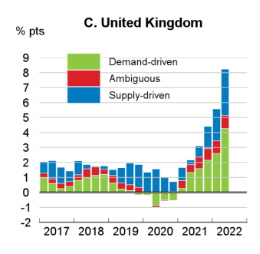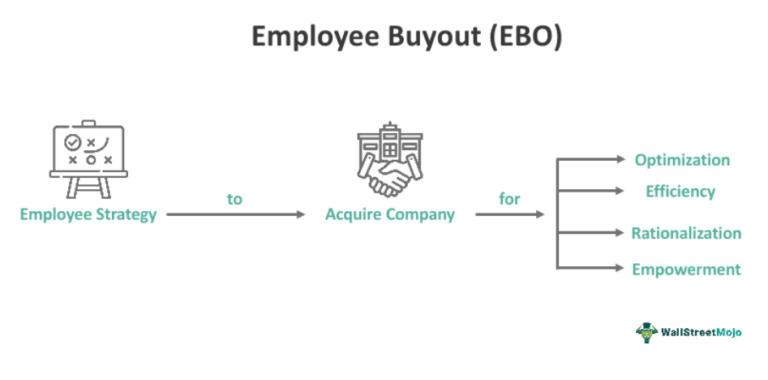
The Current State of the UK Economy: What You Need to Know About Interest Rates and Your Daily Life
The world of economics often feels like a complex puzzle, with pieces shifting and changing shape as new information comes to light. Recently, the Governor of the Bank of England, Andrew Bailey, pointed out that the UK economy is currently facing some challenges. He compared these challenges to “bumps in the road.” This analogy makes it easier to picture; just like a bumpy road can jolt your car and make your ride a bit uncomfortable, the current economic situation can make life a little harder for people living in the UK today.
Understanding Inflation: The Price of Everything Rising
One of the biggest issues our economy is facing right now is inflation. Inflation is when the prices of goods and services rise, making it more expensive for you and your family to buy everyday items. Imagine you could buy a chocolate bar for one pound last year, but this year, the price has jumped to £1.20. That’s inflation at work! Andrew Bailey suggested that some of the price increases we’re seeing might only last for a short time, and good news: wages (the money you earn for work) are also expected to go up. That could help people feel less pinched when they’re at the store. But for now, rising prices can feel like a huge “bollard” blocking your way as you try to navigate your daily life.
Interest Rates and Mortgages: What It All Means
The Bank of England is responsible for setting interest rates, which are the costs for borrowing money. Recently, they lowered interest rates from 4.75% to 4.5%. You might wonder what this means for people like your parents, who may have mortgages—loans taken out to buy homes. When interest rates drop, it usually makes it cheaper to borrow money. However, Bailey warned that even though mortgage rates could go down, many homeowners who are looking to switch their mortgage plans (known as re-mortgaging) might not find any better deals than what they already have.
Let’s break this down with an example. If your parents currently pay a mortgage at 4.5%, and then they re-mortgage at the same rate, they won’t save any money, right? This situation can feel frustrating for families who hoped to ease their financial burden; it’s like thinking you’ve found a shortcut only to hit a dead end.
The Arguments for Further Rate Cuts
Economics isn’t just a steady flow of information; it’s filled with debates, and many voices are vying for attention. Some political leaders and financial experts believe that the interest rates should be lowered even further. Richard Tice, a member of the Reform UK party, argued for a more substantial cut. It’s like when you’re playing sports, and your coach thinks you can improve your performance by practicing more. They want to push you, believing it will help you in the long run. But others like Jonathan Haskel, a former member of the Monetary Policy Committee, have raised warnings about something called “stagflation.” Stagflation refers to a situation where the economy is not growing (stagnation) while people are still dealing with rising prices (inflation). It’s a challenging combo that could hurt everyone, especially young families.
Political Perspectives: Leaders Weigh In
Political leaders are also paying attention to the state of the economy. Prime Minister Keir Starmer expressed support for the recent interest rate cut but emphasized that more government action is necessary for improving the economy’s growth. Think of Starmer as a captain of a team; he sees that one player has scored (the interest rate cut), but he knows that the team needs to work together to win the bigger game. On the other hand, Daisy Cooper, from the Liberal Democrats, has been voicing her concerns, advocating for solutions as well.
Looking Ahead: Forecasts and Predictions
While the situation sounds a bit depressing, it’s essential to look ahead at the forecasts. Predicting the future of an economy is a bit like trying to forecast the weather—you get an idea, but it can change quickly. Current predictions indicate that UK economic growth may only rise by about 0.75% in 2025, and inflation could hit 3.7%, at least for a short time. When you see numbers like this, it can feel a bit disheartening. However, it’s important to remember that these are just forecasts, and the economy has a way of surprising us sometimes.
The Bigger Picture: Global Issues and Trade
Yet, there are more challenges on the horizon, like potential trade barriers and rising energy prices. Just like how your phone’s battery life can take a hit if you have too many apps running in the background, all these economic factors can complicate the UK’s situation. Energy prices, in particular, have a direct impact on everyone. Higher energy costs mean parents are paying more to keep the lights on and their homes warm, and that can take a toll on family budgets.
Caution and Gradual Change
The Bank of England is trying to be cautious. They are taking a gradual approach to their actions, which means they’re thinking carefully before making any big changes. It’s similar to when you’re cooking and taste-testing your food; you want to make sure it’s just right before you serve it up. For now, the focus is on how both global and internal challenges will influence the economy moving forward. The big question remains: will the Bank’s strategies be enough to support consumers and businesses?
What Does This Mean for You?
So, what does all this mean for you as a 9th grader? While you might think that money and economics are just adult problems, the truth is they affect your life too. If your family is struggling with rising costs, it can impact what you do, like the activities you participate in, the food you eat, or even the games you play. Understanding the economy can help you see the bigger picture of what’s happening in the world around you and how it connects to your life.
Let’s Talk!
As we think about these economic challenges and changes happening in the UK, what are your thoughts? Do you feel like you understand how these issues will impact you and your family? Have you noticed the rising costs of things you buy regularly? I’d love to hear your opinions and stories about how the current state of the economy has affected your life. Please share your thoughts in the comments below!





